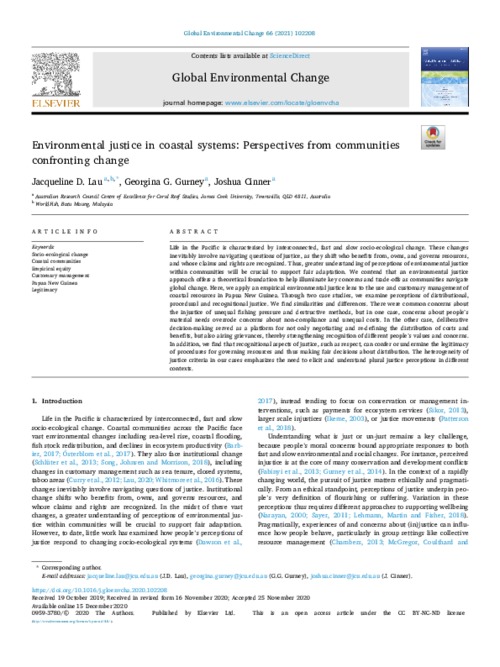Environmental justice in coastal systems: Perspectives from communities confronting change

Life in the Pacific is characterised by interconnected, fast and slow socio-ecological change. These changes inevitably involve navigating questions of justice, as they shift who benefits from, owns, and governs resources, and whose claims and rights are recognized. Thus, greater understanding of perceptions of environmental justice within communities will be crucial to support fair adaptation. We contend that an environmental justice approach offers a theoretical foundation to help illuminate key concerns and trade-offs as communities navigate global change. Here, we apply an empirical environmental justice lens to the use and customary management of coastal resources in Papua New Guinea. Through two case studies, we examine perceptions of distributional, procedural and recognitional justice. We find similarities and differences. There were common concerns about the injustice of unequal fishing pressure and destructive methods, but in one case, concerns about people’s material needs overrode concerns about non-compliance and unequal costs. In the other case, deliberative decision-making served as a platform for not only negotiating and re-defining the distribution of costs and benefits, but also airing grievances, thereby strengthening recognition of different people’s values and concerns. In addition, we find that recognitional aspects of justice, such as respect, can confer or undermine the legitimacy of procedures for governing resources and thus making fair decisions about distribution. The heterogeneity of justice criteria in our cases emphasizes the need to elicit and understand plural justice perceptions in different contexts.
Permalink
Date Available
Type
Publisher
Countries
ISSN
0959-3780
Copyright
CC-BY-NC-ND-4.0
Research Themes
Language